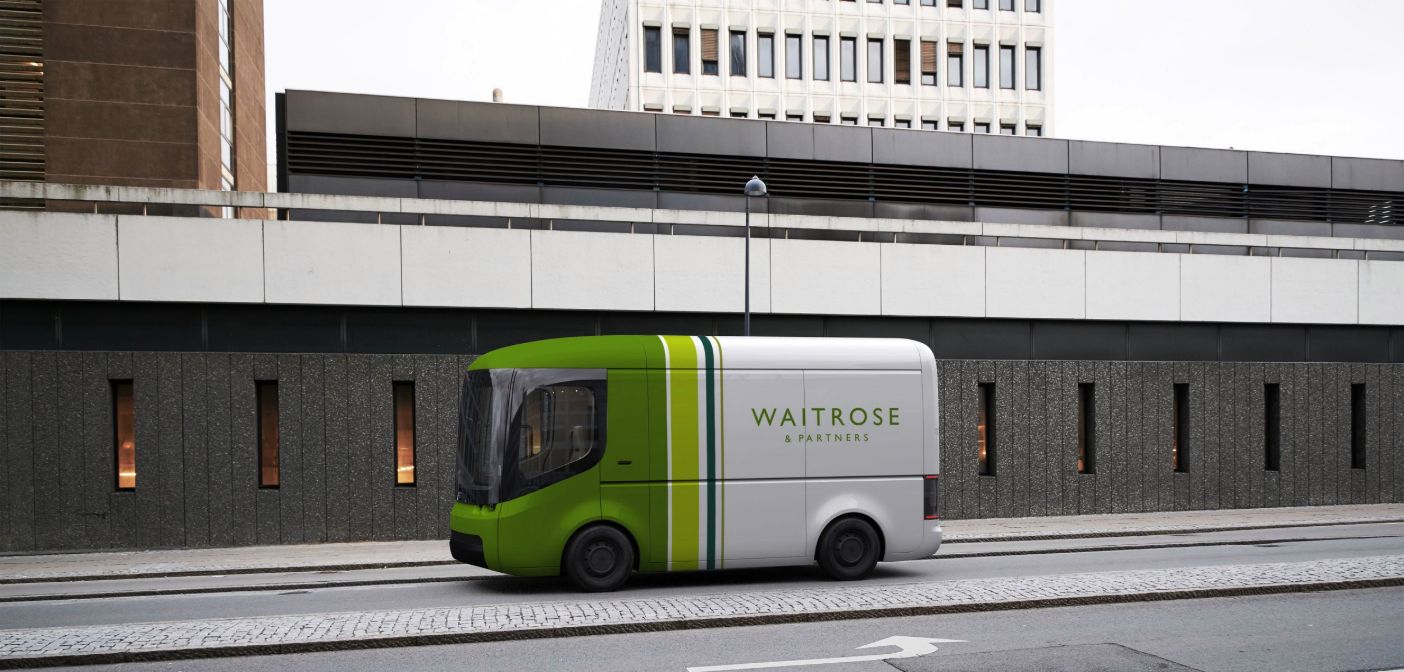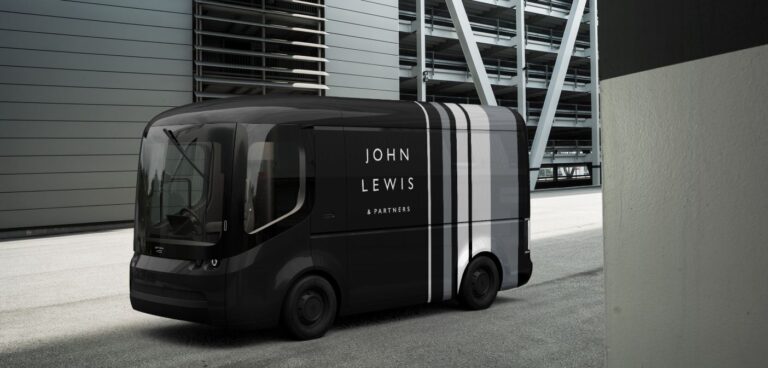John Lewis Partnership (JLP) has announced plans to increase the use of electric vans following an acceleration of its online business and to help end the use of fossil fuels across the retail group’s transport fleet by 2030.
As documented in the retailer’s Ethics & Sustainability Progress Report, published today, two new vehicle designs will be used for Waitrose.com food deliveries and for smaller John Lewis deliveries, with as many as 1,300 electric vans set to hit the roads in 2021 – reportedly saving JLP over 20,000 tonnes of CO2 every year.
JLP said it has worked with manufacturers and data scientists to source vehicles that are the most efficient and environmentally-responsible. In addition to producing fewer pollutants, the EVs have greater capacity than their diesel counterparts. In some cases, this means replacing three diesel vans with two electric ones. The vehicle can also be upgraded as technology advances, meaning the electric vans could have a life of up to 20 years or more.
The Ethics & Sustainability Progress Report also details the retailer’s commitment to increasing the number of EV charging points for customers and JLP vans in its shop car parks.
Justin Laney, partner and general manager of central transport at JLP, said: “As our online services rapidly expand, we’re working hard to meet our goal of operating a zero fossil-fuel in the next 10 years. Our new electric vans are an ideal solution for home deliveries; the innovative design means they’re more efficient, but also respectful to the environment and the growing number of neighbourhoods in which we deliver.”

Waitrose.com now delivers to nearly 90% of postcodes across the country via a network of shops and two (to be three at the end of this year) fulfilment centres in London. The Waitrose Rapid service, which offers up to 25 products for delivery within two hours, has also trebled its deliveries to 7,000 per week.
In March 2019, the employee-owned business pledged to be net-zero carbon across its entire operations by 2050 at the latest. The electric vans follow the retailer’s recent announcement that it is building a dedicated bio-methane gas filling station at its Bracknell site to enable 120 of its largest HGVs to use a low-carbon alternative to diesel.
According to JLP, use of bio-gas, which is made from food waste and food processing waste materials, will reduce its CO2 emissions over the next seven years by 80% (over 7,000 tonnes), with each truck saving over 100 tonnes of CO2 every year.





